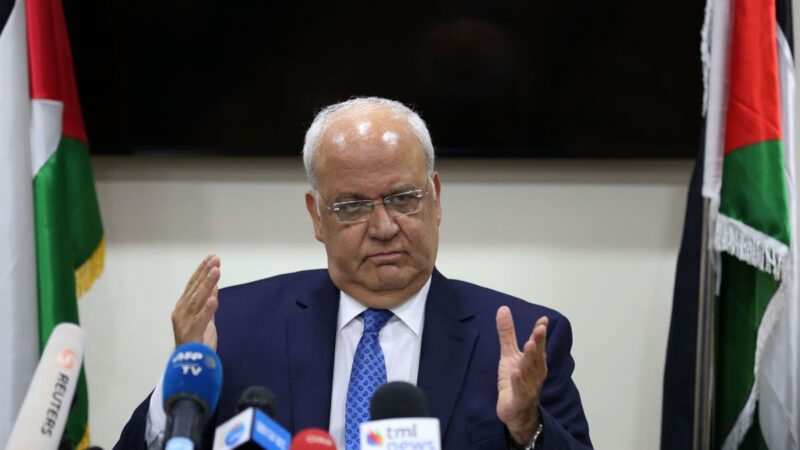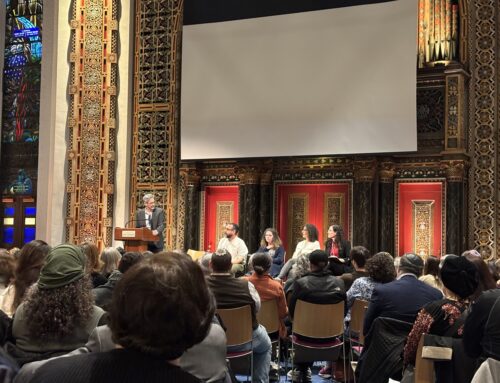My strongest memory of Saeb Erekat, who died yesterday of Covid-19 related complications at the age of 65, goes back to 1988, when Ted Koppel moderated a “Town Hall” at the Jerusalem Theater, which included Erekat and two other prominent Palestinians and four Israelis. Back then, in the midst of the first Intifada and five years before the first Oslo agreement was signed, it was highly unusual for prominent Israelis and Palestinians to talk with each other in public. The taboo was so strong that the Palestinians insisted on erecting an actual fence on stage between the two sides, which the Israelis promptly dubbed a “mehitza.”
The town hall was memorable for me because of a true light bulb moment I experienced. Though I had been on the fringes of the Israeli-Palestinian peace movement since the 1982 Lebanon War, including two years in Israel, this was apparently the first time I realized with blinding clarity that Palestinians believe as strongly in their narrative of the conflict as Jews do in ours. And I have spent a large chunk of my personal and professional life for the last 32 years writing and teaching about the importance of narratives in understanding—and resolving—the Israeli- Palestinian conflict.
Of course, that realization regarding narratives should have been so obvious as not to require comment. That it still sparks significant interest and even incredulity is a measure of how far we still have to go in preparing the ground for the conflict to end.
One longtime Partners Board member and former President, Lilly Rivlin, wrote: “For many years, Meretz USA (Partners’ previous name) met with Erakat during our annual symposium. We always felt that we were meeting with the best of the Palestinian people. He was a diplomat, and represented his people with intelligence and humanity. We will miss him.”
A Partners Vice-President, Leonard Grob, wrote that “he certainly welcomed us with warmth and graciousness every time we met with him. He was open, expressive, and absolutely on target with regard to the parties getting to (a genuine) negotiating table.”
Since he spent most of his life as an advocate and negotiator for Palestinian rights and statehood, it is perhaps both ironic and fitting—though sad and unfortunate—that he should die in the midst of a period in which negotiations have broken down and disappeared. Only face-to-face negotiations by Israeli and Palestinian decision-makers can create a process that will provide Palestinians what has long been denied them: their civil and political rights, individually and collectively.
—

Paul Scham is President of Partners for Progressive Israel and director of the Gildenhorn Institute for Israel Studies at the University of Maryland.







Leave A Comment